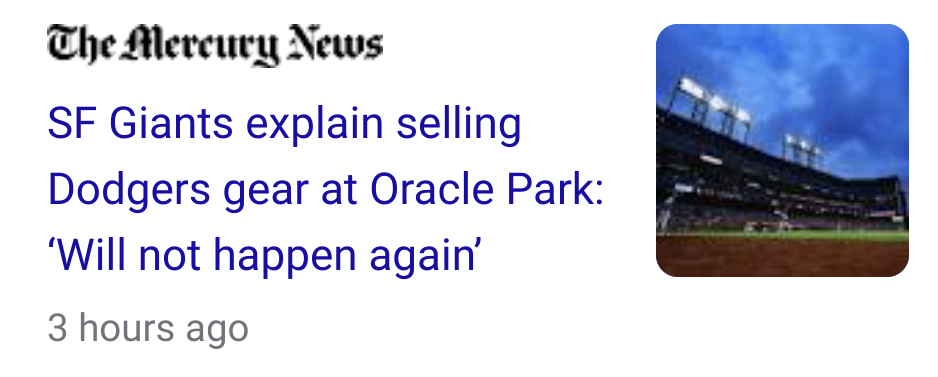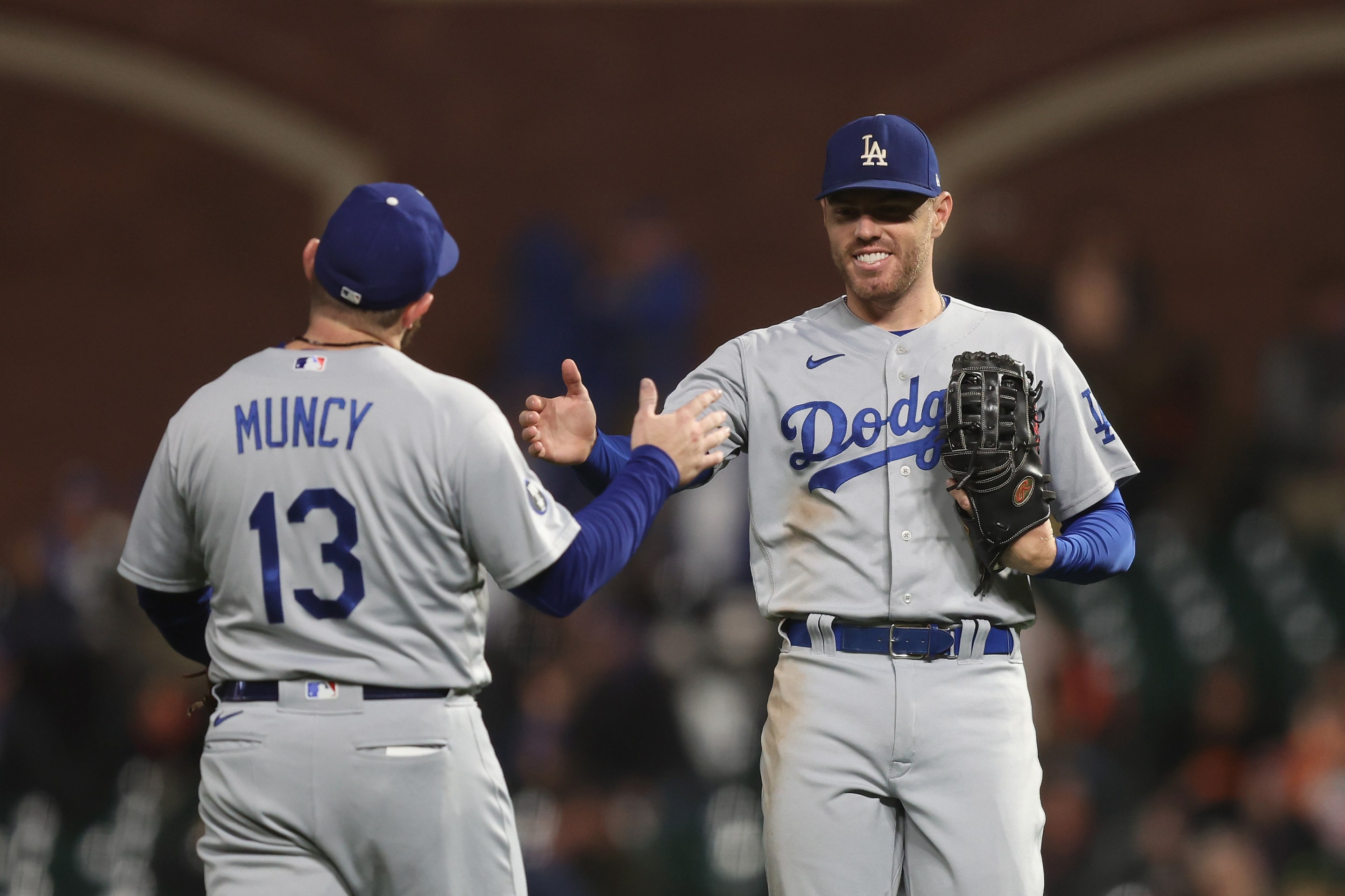Defector has partnered with Baseball Prospectus to bring you a taste of their work. They write good shit that we think you’ll like. If you do like it, we encourage you to check out their site and subscribe.
This story was originally published at Baseball Prospectus on September 19.
Humans aren’t built to understand scale; it’s a confounding problem for elementary school teachers and theoretical physicists alike. You can probably imagine five oranges simply in your mind’s eye. When asked to conceptualize 50 or 500 oranges, though, you’d resort to some sort of shortcut. Most likely, you’d put the oranges into sets of fives or tens and then zoom out until those groupings amounted to a bigger picture. We’d generally call this “counting” rather than a shortcut, but it’s useful to remember that the entire base-10 system is arbitrary (see: clocks) and a method to overcome relatively hard limits on human short-term recall.
The problem is this system becomes far less useful at the extremes: How do you get a 10-year-old to conceive of a period 200 of their lifetimes past? Or you might’ve heard this one from wealth inequality activists: one million seconds is around 12 days. One billion seconds is 31 years. On the most extreme end: An atom is around 10-8 cm in diameter, a (theoretical) string is around 10-33 cm. The mind struggles to differentiate those numbers further than “tiny” and “infinitesimal,” so again an alternative explanation is useful: if an atom was the size of our solar system, a string would be one tree. The point is that our scales of reference only really work in the confines of that which we can already imagine. The Dodgers have broken MLB’s context, and so require creative methods to quantify their success.
On June 12th, the Giants beat the Dodgers, 2-0, finishing off a sweep and cutting Los Angeles’ NL West lead to half a game. At 37-23, the Dodgers were on pace for a respectable 100-win season. After a win Sunday night to finish off their season series with a sweep, the team ran its record to 64-21 in their last 85 games; in that period they have lost three of 27 series (and split another), with a net loss to the Mets at the dawn of this month just one of two since the All-Star break. They went 13-1 in their latter five series with San Francisco, playing a major role in the complete breakdown of the club which last season upended them. All that puts them on the precipice of a top-three all-time finish by both wins and winning percentage, or as the Dodgers might understand it, familiar territory.
Reaching the 2001 Mariners’ record of 116 wins remains nearly impossible even with four games scheduled against the Diamondbacks (they beat the Diamondbacks on Monday evening, 5-2) and six against the Rockies to finish the season. If you want to hope, they’re 12-3 in the season series against Arizona and have been far better (117- versus 108-win pace) at home, where all but three of their remaining 16 contests will be played. Still, they’d need to win 14 of 16 contests to tie, and their winning percentage says they should only win 11 of those games. So, here are some alternative ways in which the 2022 Dodgers have shocked and awed:
- They own the 16th-best run differential of all time (+332). Eleven of the clubs preceding them played in years beginning with a 18–. They should soon surpass the 1936 Yankees (+334) and 1902 Pirates (+335), giving them the third-best run differential of the modern era. The Bombers of 1927 (+376) and 1939 (+411) remain respectively elusive and out of reach.
- The last teams to surrender fewer than 500 runs in a full season (≥150 games) were the 1972 Orioles and Athletics. With 458 runs surrendered (3.14 runs per game), the Dodgers are on track to finish just above 500 runs, though those 509 runs against would be the fewest of the century by 16.
- With a nightly attendance of 47,936, they’re averaging the second-most fans in their history, and have lost just two percent of attendees (per game) from 2019 when 23 of 30 clubs are still in the red. They’ve averaged 17.8 percent higher attendance than the next-highest club, the Cardinals. It seems entirely possible they could in 2023 break that illustrious four million mark, crested by four teams in MLB history and none since 2008.
- They clinched so early they broke MLB.
- Plus there’s this: Truly, Third Punic War shit.

Teams to win 100+ games in 3 straight full seasons:
— Sarah Langs (@SlangsOnSports) September 18, 2022
2019-22 Dodgers
2017-19 Astros
2002-04 Yankees
1997-99 Braves
1969-71 Orioles
1942-44 Cardinals
1929-31 A’s
LAD won 106 in 2019 & '21
Only team to win 105+ in 3 straight full szns: 1942-44 Cardinals
No team has done it w/106
Ok, fine, the Dodgers are ridiculous. More at 11. But it’s very difficult to identify a stretch in MLB history when a team has dominated so thoroughly for such a prolonged period. Since 2014, here are the top five teams in MLB by winning percentage:
| Team | W | L | W-L% | Run Differential | pythW-L% |
| LAD | 922 | 581 | .613 | 1720 | .623 |
| NYY | 847 | 655 | .564 | 868 | .559 |
| STL | 842 | 660 | .561 | 795 | .557 |
| CLE | 833 | 668 | .555 | 833 | .559 |
| HOU | 823 | 681 | .547 | 944 | .565 |
There’s as much room between the Dodgers and Yankees (by win percentage) as there is between the Bombers and 10th-finishing Nationals. This is one of those scale problems: how can one conceive of the scale of that dominance? On a 162-game basis, the Dodgers have posted 99 wins for a decade; eight games better per annum than the next-closest contender. This, recall, in what is almost certainly the most disparate period in terms of team-to-team talent levels of the entire expansion era: there are more tanking opponents to beat up on, but also more superteams that can match superlatives. Still: The Atlanta clubs that won 14 straight titles did so with a .606 winning percentage, but in those years the Yankees averaged four wins fewer, half their recent deficit against the Dodgers. There’s no AL analogue to this outfit.

There have been (per Stathead) 113 seasons in MLB history in which a team has logged at least 100 victories. Fourteen of those seasons have been since 2017, compared to 16 between 2000 and 2016. Of 39 teams to record at least 104 Ws, eight have played in this millennium; six in 2017 or more recently. The Dodgers own three of those incredible seasons, logged in the last four full seasons, and are all but assured to get another. The only year preventing them from a four-season streak, the first of its sort in MLB history, they had the best winning percentage of any expansion era team.
The playoffs are their own beast, and to be understood as a clearly better dynasty than, say, the 1991-2005 Braves, the Dodgers need a little more history and another title. But the regular season is the better conduit for cogent analysis and coherent narratives specifically because of its wide zoom, the perspective afforded by a broader scale. The continual expansion of the playoffs is one cheapener of the regular season, the ubiquity of tanking cycles another, but perhaps it’s just as well: at a period in which the regular season matters for the least it ever has, it so happens the Dodgers have broken the scale.






